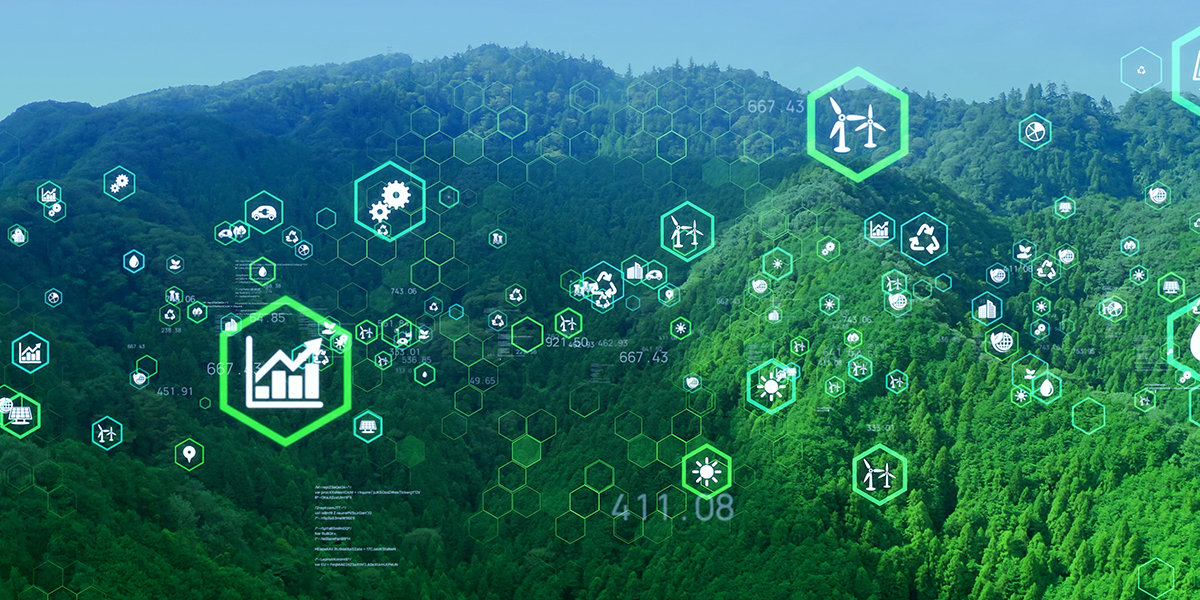
Corporate Sustainability: how to integrate it into business strategy to build a responsible future
21 December 2023Any business that wants to look into the future today must be grounded in the idea of sustainability. Without a real commitment to respect the planet, its resources, and the next generations, it is not possible to imagine a market with a sustainable and, therefore, achievable future. At Bologna Business School, issues related to sustainability are integrated with business management in the School‘s Master‘s degrees, to train the best managers able to guide companies in the transition to a sustainable model.
But what is meant by corporate sustainability? A company’s concrete commitment to creating a business model that not only allows the company to sustain itself but also the environment and society through fair and forward-looking behavior.
It is about balancing the interests of various players, including employees, customers, stakeholders, local communities, and the ecosystem, to create long-term value. The main goals of corporate sustainability are minimizing the environmental impact of one’s activities, promoting social justice, and adopting ethical governance practices.
Bologna Business School offers the key to translating these practices into operations in its study paths: Global MBA, Professional Master, Executive Master. Project Work and Smart Week on Campus allow me to work on constantly developing topics to gain “hands-on” knowledge that can be immediately applied in the company.
BBS’s flagship on the sustainability topic is the Centre for Sustainability and Climate Change, a project established in mid-2021 to lead to a concrete commitment to sustainability issues. Composed of researchers in different disciplines and directed by Matteo Mura, Ph.D., Associate Professor of Management Control Systems at the Department of Business Sciences, University of Bologna, the Center is associated with the core faculty of Bologna Business School and aims to disseminate and develop the themes of ethics, corporate responsibility, and economic, social and environmental sustainability.
Four key points are the core of the idea of corporate sustainability.
Environment: the conservation and responsible management of natural resources, the reduction of pollutants, and the preservation of biodiversity.
Economy: the creation of a virtuous and sustainable market, able to meet today’s needs without compromising future ones. The development of economic prosperity through job creation, equitable distribution of resources, and circular economy solutions.
Society: the adoption of social responsibility in inclusion, protection of rights, and social justice. The assurance of workplace safety, well-being, and respect for workers. The translation into the company of the ideal society being promoted: free, conscious, inclusive.
Culture: the respect and promotion of cultural diversity, education, and community outreach to preserve the meeting of tradition and innovation.
In this direction, sharing direct experiences becomes essential: BBS offers students of its Master’s programs Company Visit, “on-the-ground” meetings with sustainability managers, and Leader’s Corner: appointments with business leaders ready to share their experiences.
But, concretely, how does one measure the sustainability of a company? There are various indicators and approaches. Some indexes measure financial performance and the ability to generate long-term profits and environmental indicators: analysis of the balance between consumed resources and production, greenhouse gas emissions, water use, and waste production and disposal. These metrics translate into social evidence: health and safety of employees, inclusion, and involvement of the community in which one operates.
To give uniquely legible standards, there are certifications such as ISO 14001 for environmental management, ISO 26000 for social responsibility, and B Corp certification for companies that meet sustainability and social impact standards.
In this scenario, companies, like individuals, are called upon to adopt responsible and sustainable behavior according to ESG (Environment, Social, Governance) principles, the three pillars of sustainability according to the European Union. Environmental parameters that look at a company’s behavior toward the environment (A); social criteria that study the impact and relationship with the land and people (S); and corporate governance issues inspired by good practices and ethical principles, compensation policies, transparent decision-making and respect for rights (G).
Bologna Business School translates these themes into pathways of study with core courses, mentorship and Sustainable Dialogues, and meetings with executives committed to the transition to sustainable models.
Laboratories and group work focused on the concept of sustainability (energy, ecological, agricultural, mobility, etc.) are combined with hundreds of hours of online or on-campus teaching, depending on the Master‘s formula, with one common goal: to improve one’s career, be it at the beginning or aimed at the top management roles. Bologna Business School‘s Master translates the various nuances of the concept of sustainability into a concrete job opportunity.
Talking about corporate sustainability, understanding its definition and identifying concrete examples of it, understanding what it means, and finding the best strategies to improve all related parameters is not a duty, it’s an obligation. At the same time, it is a growth accelerator: in fact, it entails the best competitive advantage that can be obtained in the short term and remains the only way for any business that wants to stay in the long run. Bologna Business School, with its cutting-edge programs and international Faculty from universities and leading global companies, is the perfect starting point for understanding a topic that penetrates every business today and will be its main driver tomorrow.
Learn about Bologna Business School’s master’s programs with a focus on sustainability:
- Green Energy and Sustainable Businesses Global MBA
- Sustainability Transition Management Executive Master
- Green Management and Sustainable Businesses Professional Master
